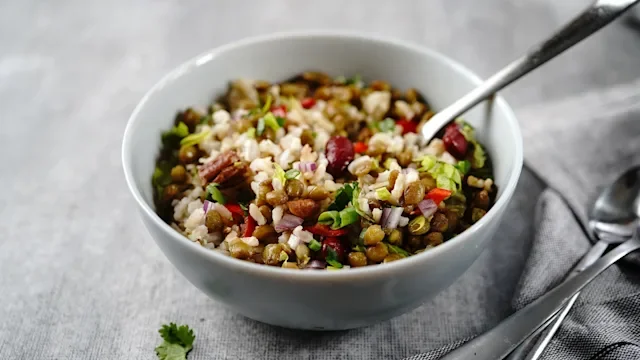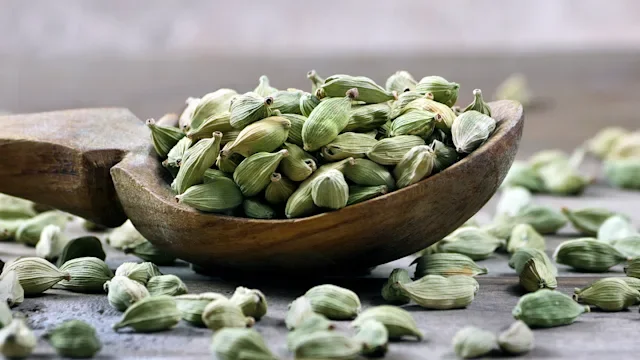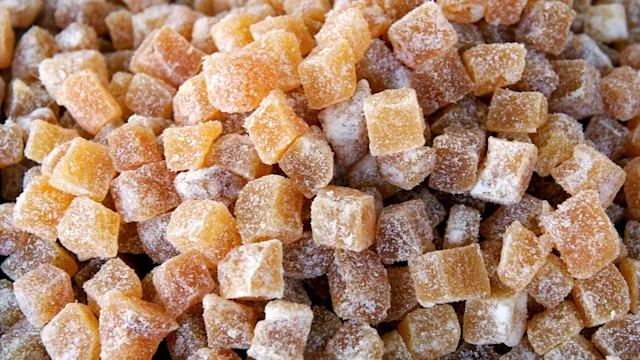Key takeaways:
Both honey and white sugar are forms of added sugar in your diet. But honey contains some nutritional advantages including plant compounds not found in white sugar.
Some of the benefits of honey are that it contains antioxidants and antibacterial properties. It’s also better for your blood sugar compared to white sugar. However, there are also some disadvantages.
The best form of honey is organic, raw, and unpasteurized honey since it contains the highest amount of nutrients. But this type of honey isn’t safe for everyone.
We’re often told to limit our sugar intake. But you may have wondered whether that applies to all types of sugar. Some sugars — like honey — are advertised as more natural alternatives to sugar. So, is honey healthier than traditional white table sugar?
Here, we’ll break down what sets honey apart from white sugar, including its nutritional differences, potential downsides, and reasons to choose one over the other.
Is honey a healthier choice than sugar?
In general, yes. While they are both forms of added sugar in your diet, honey has a few advantages over regular white sugar.
It contains antioxidants
Honey contains plant compounds called flavonoids and phenolic acids, which are types of antioxidants. Antioxidants fight against free radicals, which are things that can damage your body’s cells and lead to disease. Eating honey can therefore help contribute to the total antioxidants in your diet, which helps keep your body healthy.
It has antibacterial and anti-inflammatory properties
Honey has been used for centuries to treat a variety of wounds — like burns, scrapes, and surgical incisions. It has been used in both hospital settings and at home for this purpose.
The antibacterial properties of honey — along with its ability to help reduce inflammation — make it effective at treating other health conditions like upper respiratory tract infections. In fact, the American Academy of Pediatrics recommends honey as a remedy for treating coughs in children older than 1 year.
It’s better for your blood sugar
Honey has a lower glycemic index compared to granulated white sugar. This means honey won’t raise your blood sugar as much as white sugar — assuming you’re using similar serving sizes. This makes it a better sweetener choice for people with diabetes. Still, since honey is a concentrated form of sugar, its use should still be limited.
It contains trace amounts of vitamins and minerals
Honey contains vitamins and minerals like calcium, zinc, and B vitamins — but in very small amounts. So honey isn’t a significant source of these nutrients in anyone’s diet.
Can using honey instead of sugar help you lose weight?
Probably not. The research on honey and weight loss has been a bit conflicting. Some research suggests that honey can help manage health conditions associated with excess weight. More specifically, it may improve:
Blood sugar levels
Cholesterol
Insulin sensitivity, which also improves blood sugar levels
Oxidative stress associated with excess weight
Blood vessel health
Does honey help soothe a cough? If you’re trying to choose between sugar and honey when you have a cold, honey is the clear winner.
The best sweeteners for people with diabetes: Different sweeteners have different effects on your blood sugar. Learn which ones have the best glycemic index.
Is stevia better for you? Stevia is a no-calorie sweetener that comes from plants. But many stevia products contain other additives to look out for.
But it’s not clear if honey actually helps someone lose weight. Another more recent analysis found that honey didn’t have any reliable weight-reducing effects in humans. Even though it seemed to reduce body weight in animal studies, honey didn’t help with weight loss in human studies.
So until there are more human trials, people shouldn’t eat honey specifically to lose weight. This is especially true since an abundance of research — and recommendations from the CDC — report that consuming added sugars of any kind is a major contributor to obesity.
Nutritional differences of honey vs. sugar
Here’s the nutritional breakdown of 1 tbsp of honey and 1 tbsp of granulated white sugar:
Read more like this
Explore these related articles, suggested for readers like you.
Honey | White sugar | |
Calories | 64 | 49 |
Carbs | 17 g | 13 g |
Sugar | 17 g | 13 g |
Fat | 0 g | 0 g |
Protein | 0 g | 0 g |
Disadvantages of using honey over sugar
While honey is a generally good choice of sweetener, it does have a few downsides.
It’s not safe for babies
Honey can contain a type of bacteria called Clostridium. This bacteria can cause a disease called botulism. In infants, botulism can cause muscle weakness that may lead to poor feeding, difficulty breathing, and even death. So you should never give honey to an infant under the age of 1.
Keep in mind, though, that the USDA recommends that kids younger than 2 years not have added sugars at all in their diet.
It doesn’t dissolve as well
Honey is much thicker and has a different texture than sugar. So it may not dissolve as well in things like cold beverages. So depending on what you’re making or using it for, it may or may not be the right choice.
It’s sweeter and contains more sugar per serving
Compared to white sugar, honey provides about 4 g more of sugar per tablespoon. However, because it’s sweeter, you may not need as much of it. This may actually help you cut down on your sugar intake. So the fact that it contains more sugar could be a downside or a benefit, depending on how much you’re using.
It may not be tolerated well by people with digestive issues like IBS
Honey is high in monosaccharides, a type of FODMAP. These are carbohydrates that are harder to digest. People who are following a low FODMAP diet — which was designed for people with irritable bowel syndrome (IBS) — should avoid using honey to help ease their digestive issues.
Are some types of honey healthier than others?
Yes, some varieties of honey are healthier choices than others.
Raw, unpasteurized honey is typically believed to be the gold standard of honey types. This is because it’s honey as it exists in nature — without any heating or processing.
Pasteurized honey, on the other hand, is heated. The heating process extends the shelf life and maintains its smooth texture. It also helps kill potentially harmful pathogens that could be a problem for people with a weakened immune system, including pregnant women.
The downside of heating is that it can kill some of honey’s beneficial properties including its antioxidants, vitamins, and beneficial enzymes.
Manuka honey is another type of honey that may have greater health benefits. This type of honey is created by bees in Australia and New Zealand. It has been found to have especially strong antibacterial properties. So some people favor it for things like wound healing. And there’s even some evidence that it stops cancer cells from growing.
Lastly, organic honey is also a great choice. This means the honey will come from flowers that are free from pesticides or other chemicals. Any type of honey can be organic, including manuka and raw, unpasteurized honey.
The bottom line
Both honey and white sugar are forms of added sugar that you should limit in your diet. But when you’re wanting something sweet, honey may have some nutritional advantages — including its antioxidant content, antibacterial properties, and blood sugar benefits. Though honey contains slightly more calories and sugar per serving than white sugar, it’s sweeter so you can use less of it. Honey may not always be the best choice of sweetener depending on what you’re using it for. But in most cases, it’s a more healthful choice than sugar.

Why trust our experts?


References
Ahmed, F., et al. (2018). Honey as a potential natural antioxidant medicine: An insight into its molecular mechanisms of action. Oxidative Medicine and Cellular Longevity.
Ajibola, A., et al. (2012). Nutraceutical values of natural honey and its contribution to human health and wealth. Nutrition and Metabolism.
Albaridi, N. A. (2019). Antibacterial potency of honey. International Journal of Microbiology.
Bobis, O., et al. (2018). Honey and diabetes: The importance of natural simple sugars in diet for preventing and treating different type of diabetes. Oxidative Medicine and Cellular Longevity.
Centers for Disease Control and Prevention. (2024). Get the facts: Added sugars.
Clark, M., et al. (2018). Honey for wound management: A review of clinical effectiveness and guidelines. CADTH Rapid Response Report: Summary with Critical Appraisal.
Dacal-Gutierrez, A., et al. (2022). Inactivation of Clostridium spores in honey with supercritical CO2 and in combination with essential oils. Processes.
Faruque, S., et al. (2020). The dose makes the poison: Sugar and obesity in the United States – a review. Polish Journal of Food and Nutritional Sciences.
HealthyChildren.org. (2022). Coughs and colds: Medicines or home remedies? American Academy of Pediatrics.
Niaz, K., et al. (2017). Health benefits of manuka honey as an essential constituent for tissue regeneration. Current Drug Metabolism.
Ramli, N. Z., et al. (2018). A review on the protective effects of honey against metabolic syndrome. Nutrients.
Ranneh, Y., et al. (2021). Honey and its nutritional and anti-inflammatory value. BioMed Central Complementary Medicine and Therapies.
Ugusman, A., et al. (2022). Role of honey in obesity management: A systematic review. Frontiers in Nutrition.


















